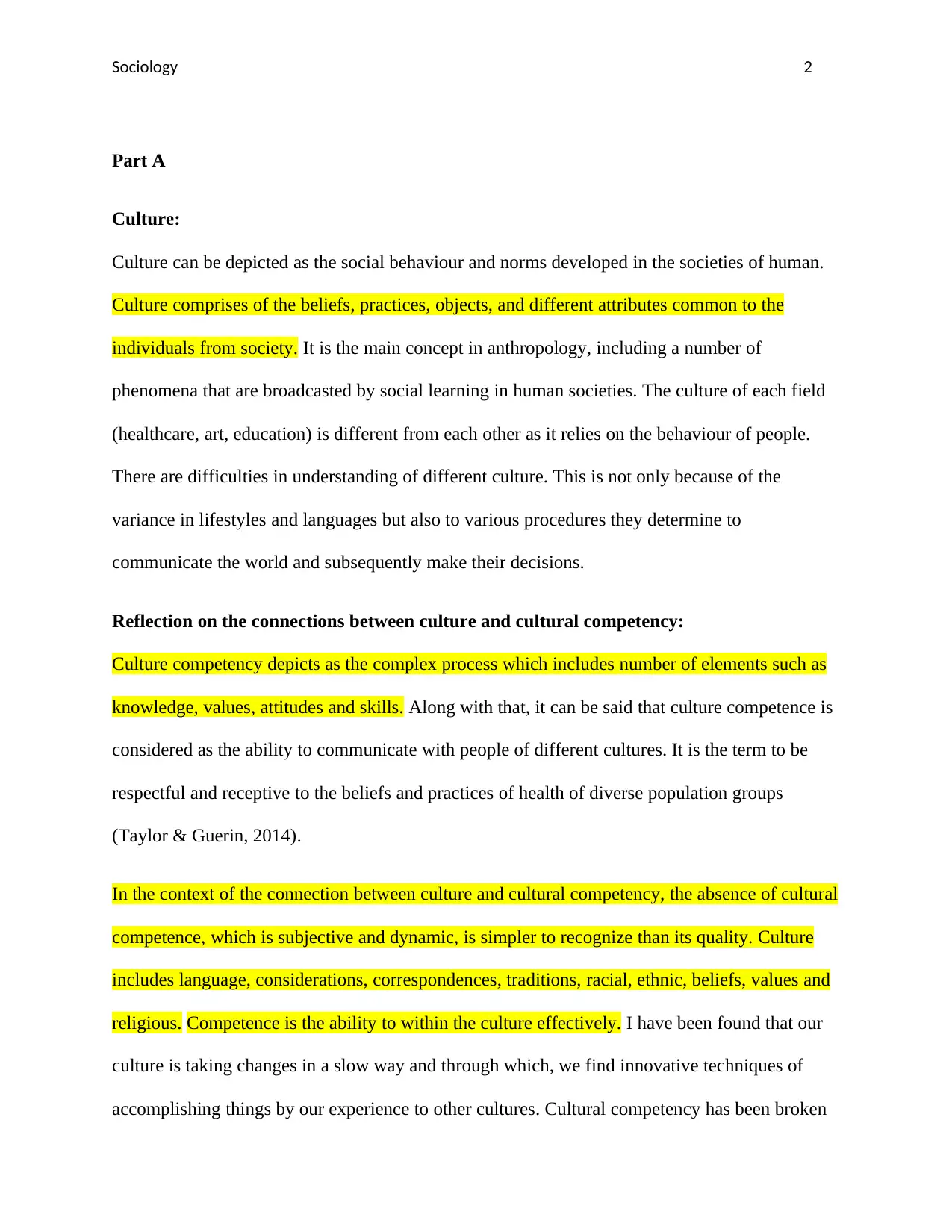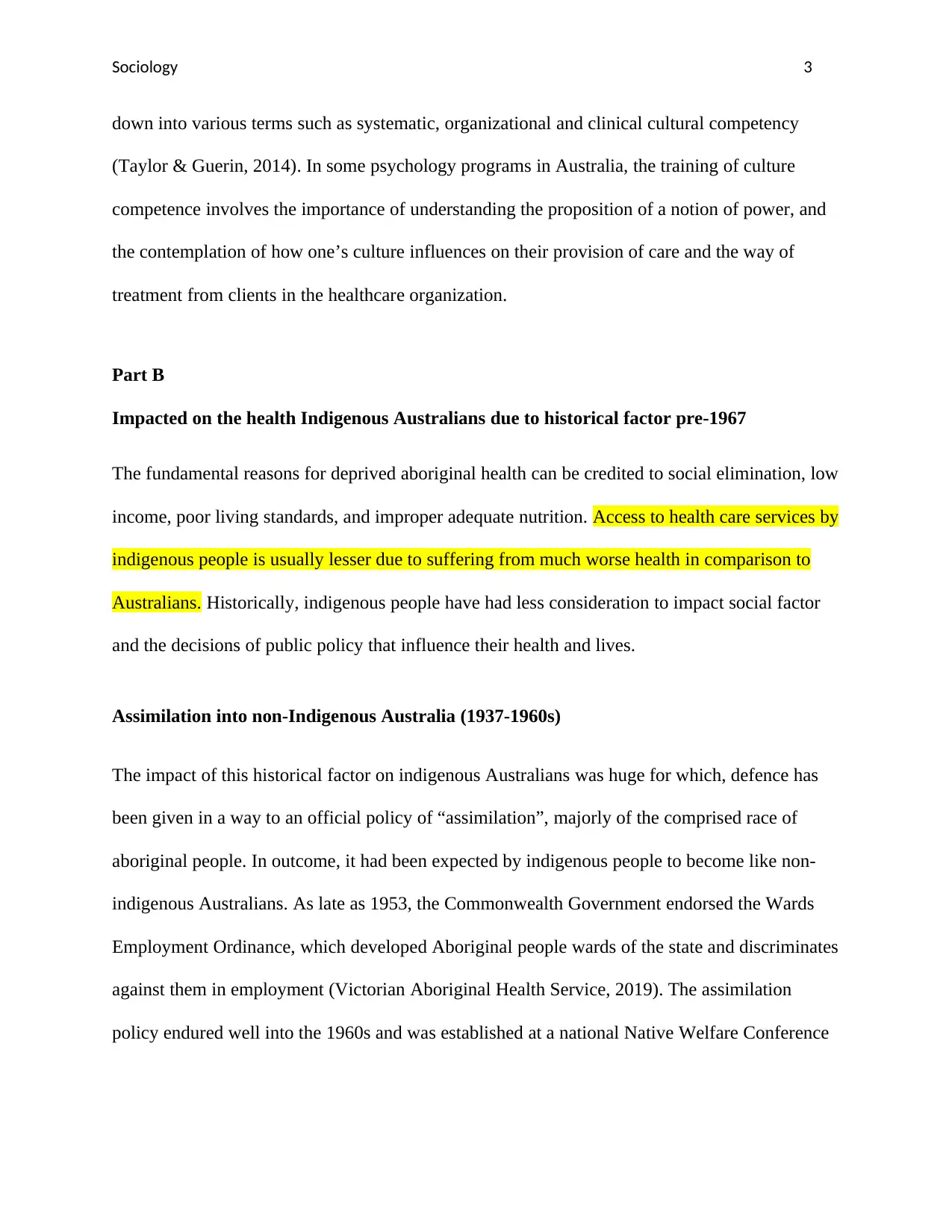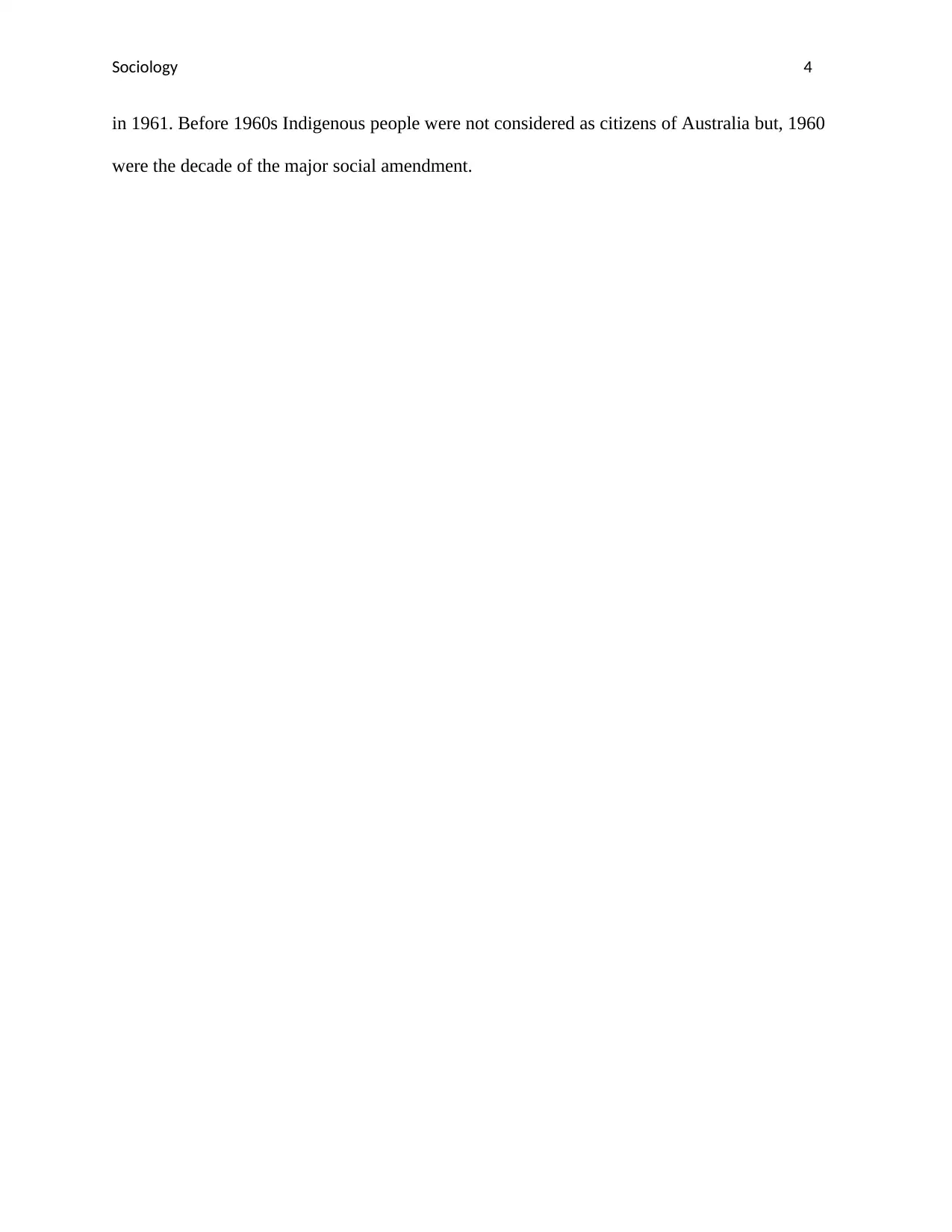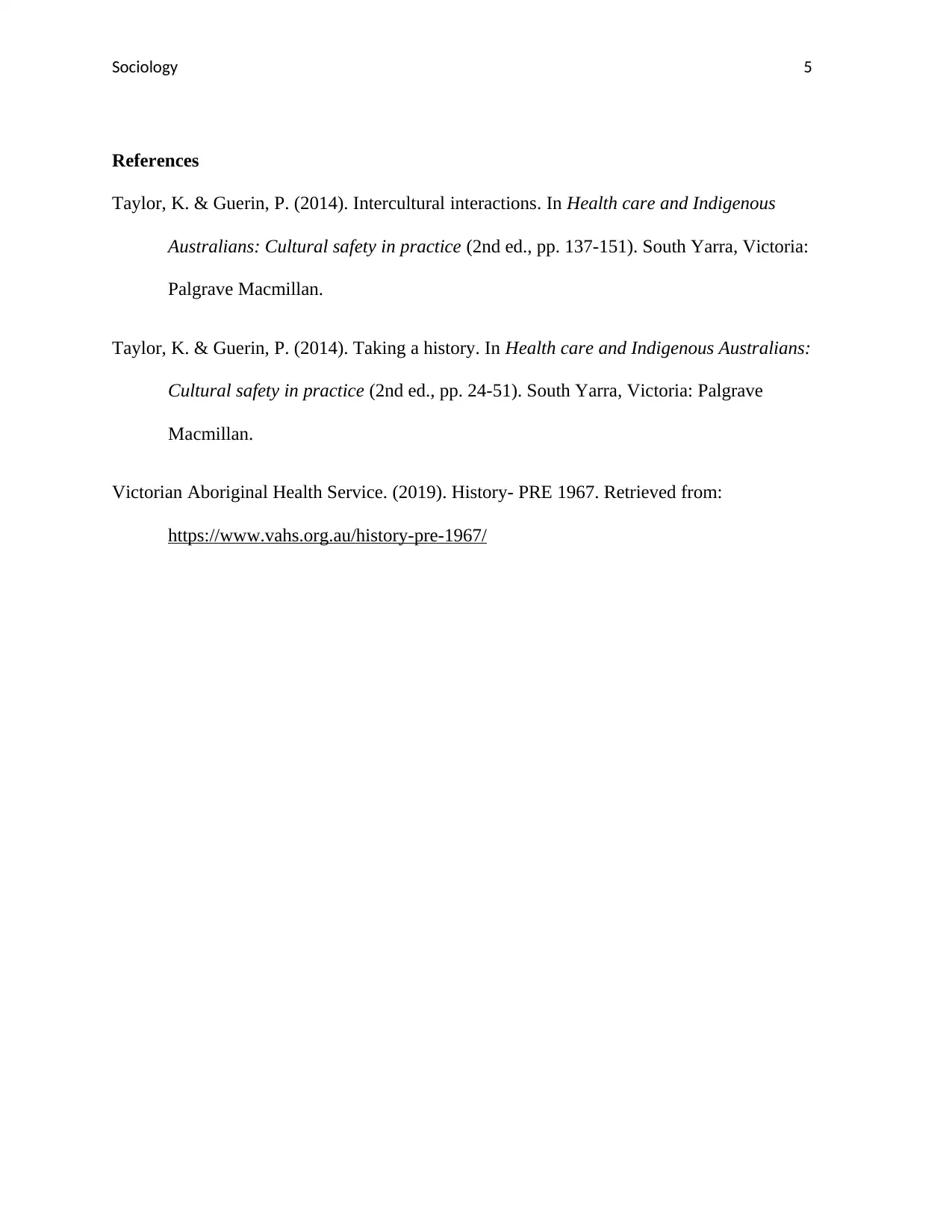Culture, Cultural Competency, and Indigenous Health: Sociology Report
VerifiedAdded on 2023/04/17
|5
|616
|284
Report
AI Summary
This sociology report delves into the concepts of culture and cultural competency, emphasizing their significance in healthcare and societal contexts. Part A defines culture as the shared behaviors and norms within human societies, highlighting the importance of cultural competency in effective communication across diverse groups. The report explores the connections between culture and cultural competency, emphasizing the ability to interact respectfully with people from different cultural backgrounds. Part B examines historical factors, specifically the assimilation policies pre-1967, and their impact on the health of Indigenous Australians, attributing poor health outcomes to social elimination, low income, and inadequate healthcare access. The report highlights the government's assimilation policies, which aimed to integrate Indigenous people into non-Indigenous society, and their lasting effects on Indigenous communities. The report concludes by referencing key sources on intercultural interactions and cultural safety.
1 out of 5











![[object Object]](/_next/static/media/star-bottom.7253800d.svg)